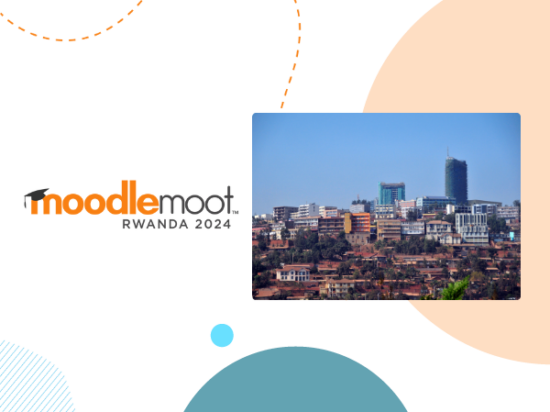International Translation Day is celebrated yearly on September 30th and celebrates the work of translators, interpreters and terminologists whose work breaks down language barriers.
At Moodle, we celebrate this day by acknowledging all volunteer translators who make our platform available in over 100 languages, including minority ones, and enable educators and learners across the globe to teach and learn using Moodle. Originally developed in English, the Moodle LMS interface has over 27,000 ‘language strings’ or phrases that have to be translated to make the software available in different languages. So, beyond translating the strings, there is a big coordination job involved, which is also undertaken by volunteer Moodlers.
One of these volunteers is Greek moodler Stamos Spiliotis, an ICT teacher in primary education who is very involved in the Greek Moodle community. Stamos has contributed to translating Moodle into Greek since 2018 and he is also a Language Pack maintainer and coordinator for this language.
Back in 2018, as he was exploring Moodle to teach his classes in Larissa, Greece, Stamos set up the platform in Greek so that learners could use it in their own language. “I realised there were some inaccuracies in the Greek language strings, and that there were some untranslated bits in pages that were almost completely translated. I wanted to try and use Moodle in primary schools where I work, so I needed all the strings to be translated to allow pupils to understand the platform and navigate easily through it“.
Stamos then joined the Moodle translation community and started contributing translations for the missing strings in Greek. While doing so, he also helped improve the English language pack and even the interface that volunteers use to contribute translations, AMOS.
Like with any translation, Stamos encountered some challenges when localising Moodle into Greek. “One of my biggest challenges had to do with the word competence. In Greek, it is very similar to the word ability, but it needed to be differentiated“. To help with these challenges, Stamos launched a public glossary to document word translations and a place to discuss some of the terms with other translators or language pack maintainers, so that they could keep improving translations collaboratively. “In a public glossary, all content is available to anyone and organised by word. There, I write results of word searches, usually a Greek word or phrase followed by an English original in parentheses, or URLs of translators that I trust. Even though I am now a maintainer, I still write in this glossary. It will help me or someone after me, in the future“. This is definitely something that Stamos also encourages other Moodle translation communities to do, especially for those languages that are just getting started. Another of Stamos’ favourite tips for Moodle translators is to check out the plugin ‘Keyboard Shortcuts for Google Translate‘ plugin.
“I think that by having a proper translation of Moodle LMS into Greek, more teachers will be attracted to use it and more students will benefit.” says Stamos. We couldn’t agree more: Ευχαριστώ πολύ Stamos, and all other volunteers who translate our open-source LMS to empower educators and students worldwide in as many languages as possible.
Do you want to see how complete the translation of Moodle is in your language? Check out all Language Packs for Moodle 3.11
Do you want to help with translating Moodle? Find out how to collaborate in the Translation guide, and get started by creating an account on the Moodle Translation site!




